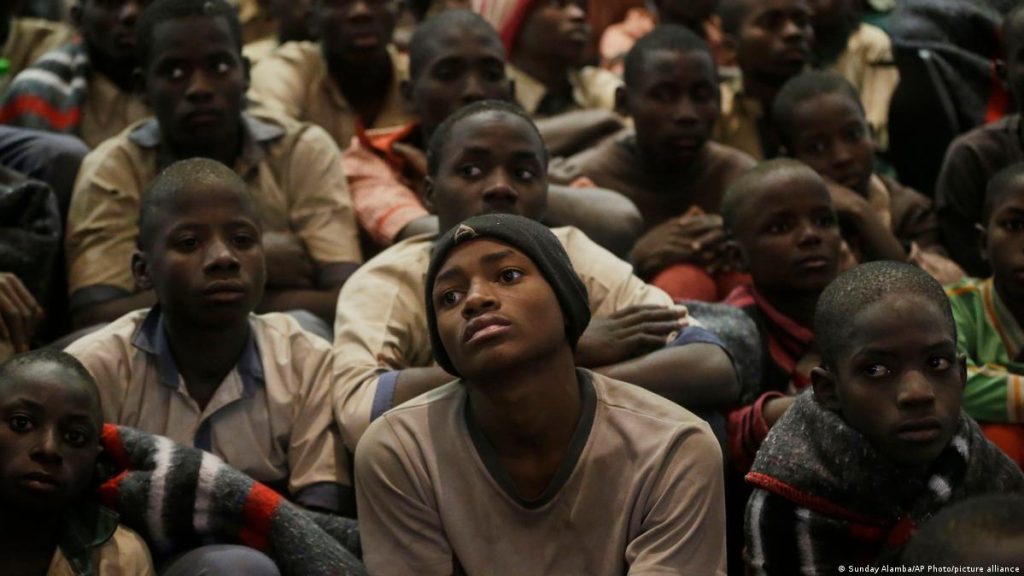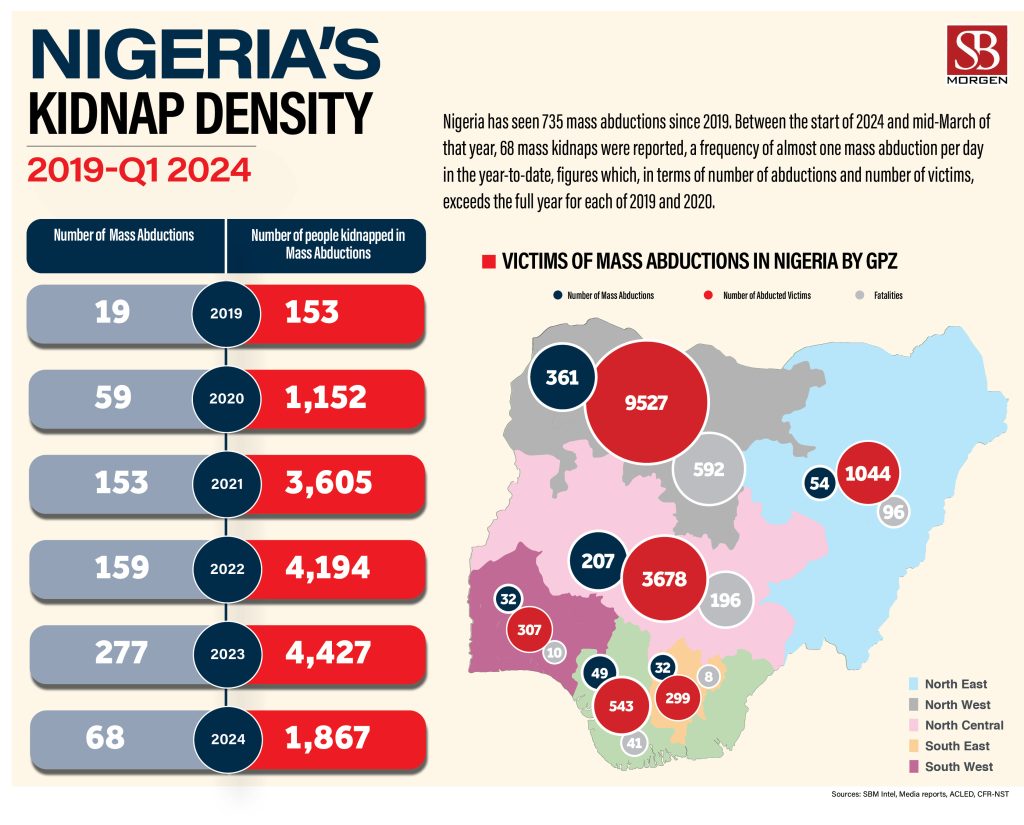Ten years after Boko Haram’s infamous abduction of Chibok schoolgirls, Nigeria still faces a nationwide kidnapping epidemic.
From hapless schoolgirls to entire villages, youth corps members in transit to highway travellers, no one is safe.
This is beyond terror; it’s a flourishing enterprise of knaves. The murderous Boko Haram insurgents opened the door, but now, bandits, gangs, cults and even corrupt officials are exploiting the windows of chaos for ransom collection, arms trafficking, smuggling, displacements and forced labour.
The numbers are not only staggering, but the activities of these non-state actors are upsetting the food security system to the level of inflation and humanitarian disaster. SBM Intelligence recently published a report detailing the escalating rise in kidnappings in Nigeria.
It indicated that over 735 mass abductions have happened since 2019, with 2024 alone averaging one a day!

Kaduna, Zamfara, and Katsina top the kidnapping charts, fuelled by weak internal security, economic desperation and sabotage from non-state actors.
While the motives vary by region, greed is the common thread connecting most of the cases. Boko Haram splinters target wealthy victims, while bandits enslave villagers, tax farmers and extort ransoms.
Even Southern Nigeria isn’t immune, with highway abductions and occasional school attacks. Not long ago, a deputy Vice Chancellor was kidnapped in Southeast Nigeria while students from Emure in Ekiti state were abducted, and their school drivers killed before the pupils were rescued.

Nigeria needs a multi-pronged approach to neutralise this worsening spate of lawlessness.
Economic inequality researchers posit that Nigeria must quickly tackle the poverty driving people into kidnapping. Second, the nation must strengthen security forces and stamp out corruption. Finally, we must rebuild trust by ensuring officials protect, and not exploit citizens.
The clock is ticking. Until Nigeria addresses these issues, this kidnapping crisis will continue to hold the nation hostage.


